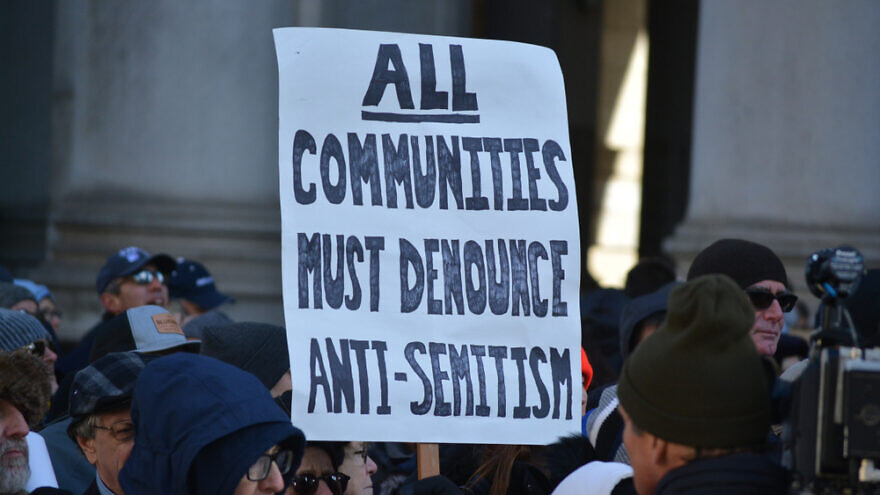The Anti-Defamation League’s new “Jewish Policy Index” paints a troubling picture of America’s ability—or willingness—to confront antisemitism, particularly the surging hostility tied to hatred of Israel. While a handful of states have taken strong legislative and educational measures to protect Jewish communities, the majority remain far behind, leaving Jews exposed in an increasingly hostile climate.
According to the ADL’s 2024 Audit, the United States experienced 9,354 antisemitic incidents last year—the highest total since record-keeping began in 1979. This translates to more than 25 incidents every day, a five percent increase over 2023 and an astonishing 893 percent rise over the past decade. For the first time, most of these incidents—58 percent—were driven by animosity toward Israel or Zionism, underscoring that anti-Israel activism has become the dominant fuel for modern Jew-hatred.
The Jewish Policy Index, developed by the ADL’s Ratings & Assessments Institute, evaluates each state’s laws and policies against 22 criteria in three areas: prioritizing the fight against antisemitism, educating about the Jewish experience, and protecting Jewish communities. States are rated as “Leading,” “Progressing,” or “Limited Action.”
Only nine states reached the “Leading” tier: California, Tennessee, Virginia, Arizona, Florida, Colorado, Texas, Illinois, and New York. California and Virginia scored highest for their comprehensive policy frameworks. Arizona earned praise for a 2016 law banning state contracts with companies boycotting Israel, expanded in 2019 and again in 2022 to cover public universities. Florida was recognized for similar anti-BDS legislation passed in 2018 and 2019, along with steps to ensure religious protections in public schools.
The majority of states—29 in total—were placed in the “Progressing” category, meaning they have taken some positive steps but remain far from full alignment with ADL recommendations. This includes states such as New Jersey, Maryland, and North Carolina. Twelve states, including Delaware, South Carolina, and Wyoming, were labeled “Limited Action,” with minimal or no policies in place to address the threat.
ADL CEO Jonathan Greenblatt warned that the country cannot afford complacency. “With antisemitic incidents at record highs nationwide, we need more than rhetoric — we need real, measurable policy action,” he said. ADL’s Shira Goodman added, “We have a crisis right now, and we need to pull every lever on the state level and the federal level… there are things that every state can do that make a difference.”
The ADL’s findings also highlight a major point often missed in public discourse: the surge in antisemitism is not just a vague rise in prejudice but is overwhelmingly tied to anti-Israel agitation. On many campuses, protests that demonize the Jewish state have morphed into harassment of Jewish students. While some left-leaning Jewish groups have criticized the ADL for counting these protests in its incident totals, the connection between anti-Israel rhetoric and antisemitic hostility is now undeniable.
The Jewish Policy Index is not a ranking of the “safest” states for Jews but a strategic roadmap showing where policies are strong and where urgent reforms are needed. For states lagging behind, the path is clear: adopt proven measures such as Holocaust education, anti-BDS legislation, and targeted security funding.
In the face of an unprecedented wave of Jew-hatred—much of it cloaked in the language of “anti-Zionism”—the JPI makes it impossible for lawmakers to claim ignorance. It shows exactly what must be done to push back. The question now is whether they have the courage to act.




